General Nail Care
Your feet – indicators of health
Because they are so far away from our heart, our feet are often the first part of the body to show something is wrong with the way blood circulates in our body. The condition of our toenails can signal the presence or beginning of several diseases. For example, toenails that are hollow instead of being rounded can indicate iron deficiency or anemia (a shortage of red blood cells). Increased nail thickness, or bumps on the nail, can be manifestations of psoriasis, a skin disease. Your podiatrist will always check the condition of your toenails, and can provide a range of treatments for all your toenail problems.
Our toenails
The major parts of the toenail are: the nail itself (nail plate); the matrix, from where the nail grows; the lunula, the white, moon-shaped area at the base of the nail; the nail bed, the tissue on which the nail lies, and the sulcus, the groove at the side in which the nail sits. Toenails grow constantly. Healthy nails are pink, free of dirt and impairment, and grow into the grooves normally. It takes up to 12 months to replace the toenail of your big toe.
Who gets nail problems?
Toenails of people of all ages can undergo a range of changes, some of which are relatively common. They can become thick, brittle, curved, discolored, infected, clubbed, bumpy and grooved. In some cases, the nail falls off and a new one grows. As we grow older, we are more likely to develop toenail problems.
What causes nail problems?
Toenail problems may be caused by warts, tumours under the nail, trauma, infection, fungus or poor circulation. Major toenail problems can be caused by incorrectly fitting shoes, which press too tightly on the toenails. Injury, such as bruising under the nail and infection can cause permanent nail deformity.
Common conditions and treatment
Ingrown toenails are the most common toenail problem. They may be caused by improperly trimmed toenails, very curved edges of nails, shoe pressure or repeated trauma to the feet from normal activities. They may also be inherited. Frequently the pain is due to a corn or callous in the groove (sulcus) of the toenail.
In the cases of persistent ingrown toe nails or nails with fungal infections we have options such as Nail Surgery to provide for long term solutions.
Your Podiatrist talks about Nail Problems
Most cases will require conservative treatment, while others may need a minor surgical correction which can be conducted in your podiatrist’s rooms using a local anaesthetic. Thickened nails are a common condition. Usually the result of injury to the nail bed, such as dropping something heavy on your toes or a fungal infection. These can be easily and painlessly thinned down by a podiatrist. Fungal infections are among the most troublesome of nail conditions to treat. They are often characterized by thickening, discoloration and separation of the front of the nail from the nail bed. In some cases the nail crumbles. These infections tend to stay in the nail if they are not treated, and can infect the nail bed. There are a range of anti-fungal medications available for treatment. Your podiatrist can assist with trimming and care of out-of-shape nails. Other infections cause inflammation of the matrix (onychia) and inflammation of the tissue adjacent to the nail (paronychia). In people with lowered immunity, this may lead to serious complications, including more widespread infection extending up the leg. Your podiatrist can detect such infections early and form a suitable treatment plan. Trauma to the nails may lead to permanent nail deformity. This can be cared for by regular, non-painful podiatric treatment, involving filing and possibly the use of a special drill.
Older people
Older people with poor circulation are prone to fragile or brittle nails. Many older people do not have the strength, flexibility, or eyesight to trim their nails, especially if the nails are deformed. They should seek podiatric care for these services, and advice regarding safe self care.
Warning signs
Any sudden changes in colour or shape of the nail, sign of infection, development of a freckle under the nail, or pain should be discussed with your podiatrist. Your podiatrist can diagnose the problem and then advise an appropriate treatment
Taking care of your nails
- Trim toenails straight across to a length just below the end of the toe. Do not round off the corners – this can cause ingrown toenails
- Use a strong pair of nail clippers
- After clipping, smooth nails with a file or emery board, using downward strokes
- Wear only properly fitted shoes, not short or narrow ones
- Wash feet regularly, especially between the toes, and dry thoroughly
- Wear socks or stockings that are not too restrictive

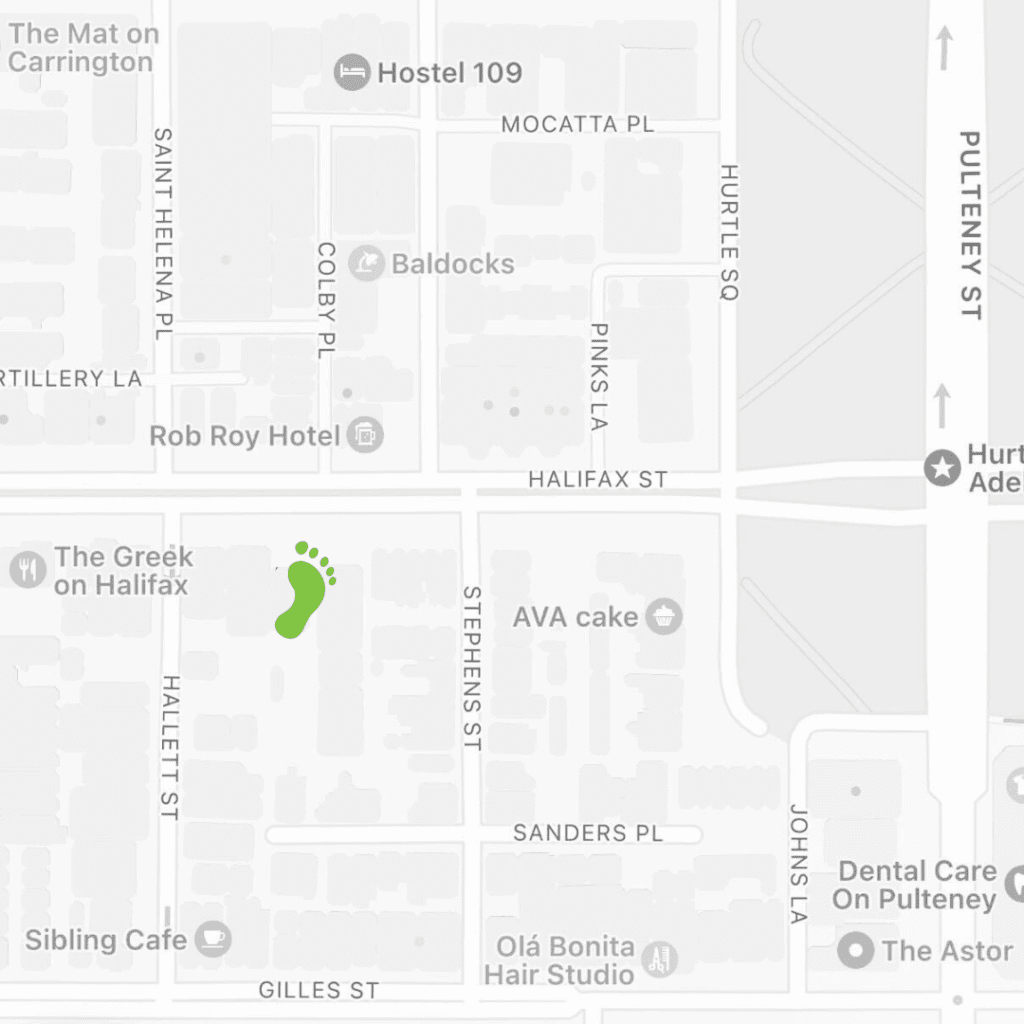
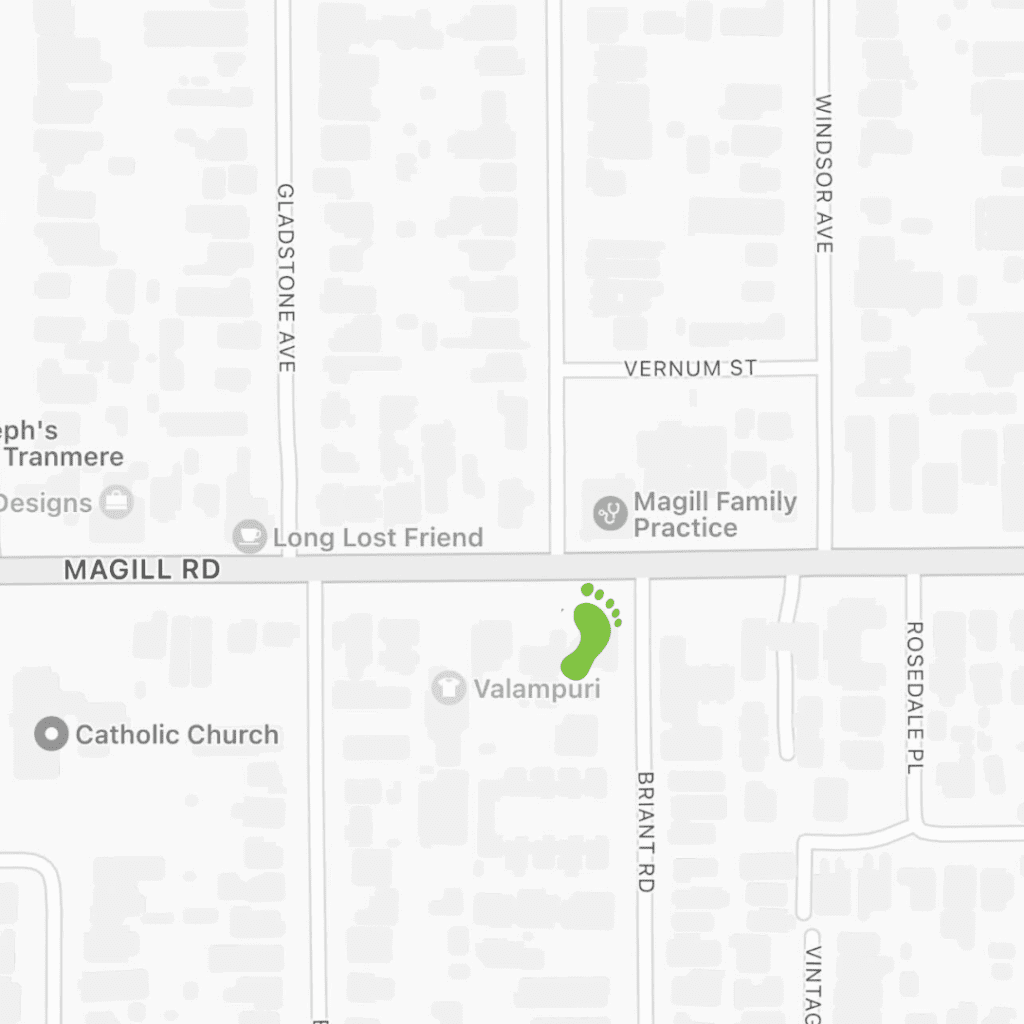 Address: 500 Magill Road, MAGILL SA 5072
Our Magill clinic is located inside the Move for Better Health Building working alongside iNform Health and Fitness, Move Physiotherapy, 360-Me Nutrition and NLC Psychology. This clinic can be found on the corner of Briant Road and Magill Road.
Accessibility: Ramp facilities, located on ground floor, disabled parking.
Parking: Onsite free car parking, ample street parking.
Restroom Facilities: Yes
Address: 500 Magill Road, MAGILL SA 5072
Our Magill clinic is located inside the Move for Better Health Building working alongside iNform Health and Fitness, Move Physiotherapy, 360-Me Nutrition and NLC Psychology. This clinic can be found on the corner of Briant Road and Magill Road.
Accessibility: Ramp facilities, located on ground floor, disabled parking.
Parking: Onsite free car parking, ample street parking.
Restroom Facilities: Yes
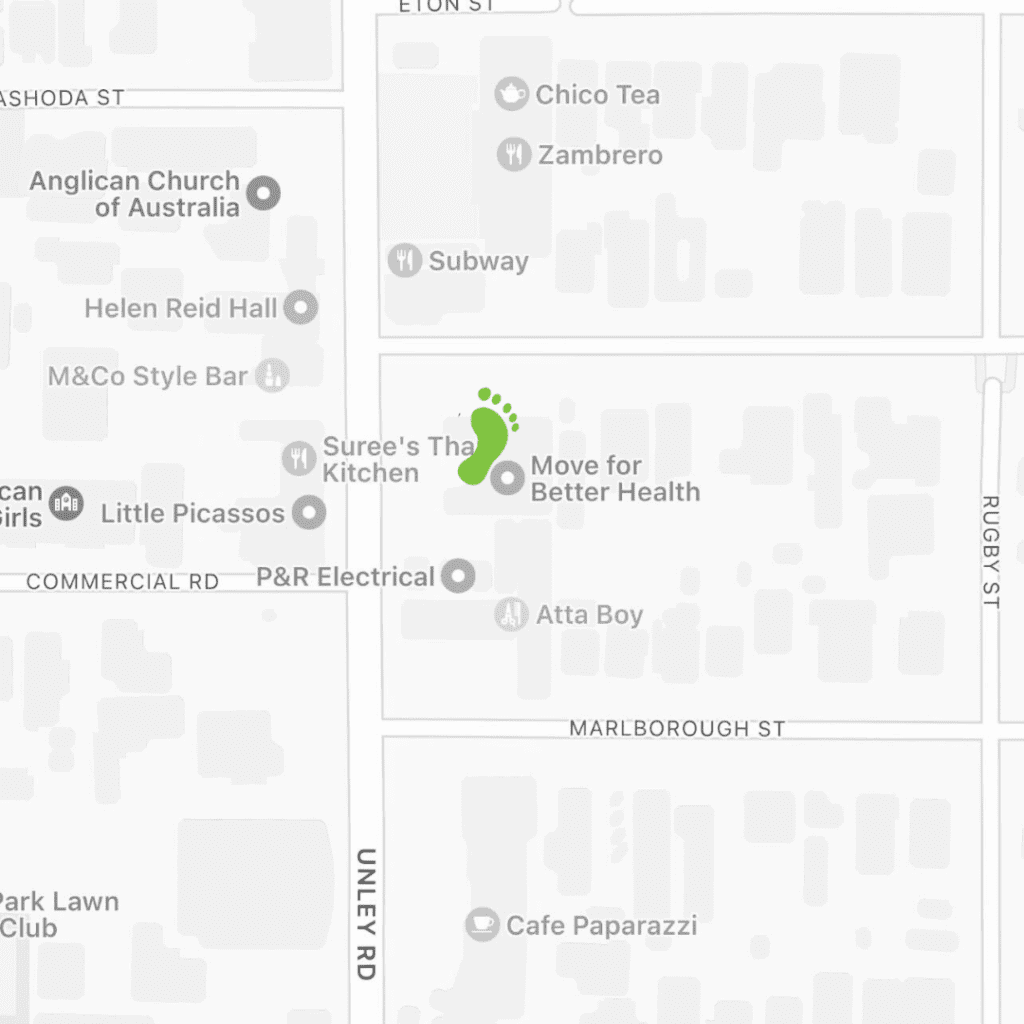 Address: 277 Unley Road, MALVERN SA 5061
Our Malvern clinic is located inside the Move for Better Health Building working alongside iNform Health and Fitness, Move Physiotherapy, 360-Me Nutrition and NLC Psychology. This clinic can be found on the corner of Fisher Street and Unley Road.
Accessibility: Ramp facilities, located on ground floor, disabled parking.
Parking: Onsite free car parking, ample street parking.
Restroom Facilities: Yes
Opening Hours:
Address: 277 Unley Road, MALVERN SA 5061
Our Malvern clinic is located inside the Move for Better Health Building working alongside iNform Health and Fitness, Move Physiotherapy, 360-Me Nutrition and NLC Psychology. This clinic can be found on the corner of Fisher Street and Unley Road.
Accessibility: Ramp facilities, located on ground floor, disabled parking.
Parking: Onsite free car parking, ample street parking.
Restroom Facilities: Yes
Opening Hours:
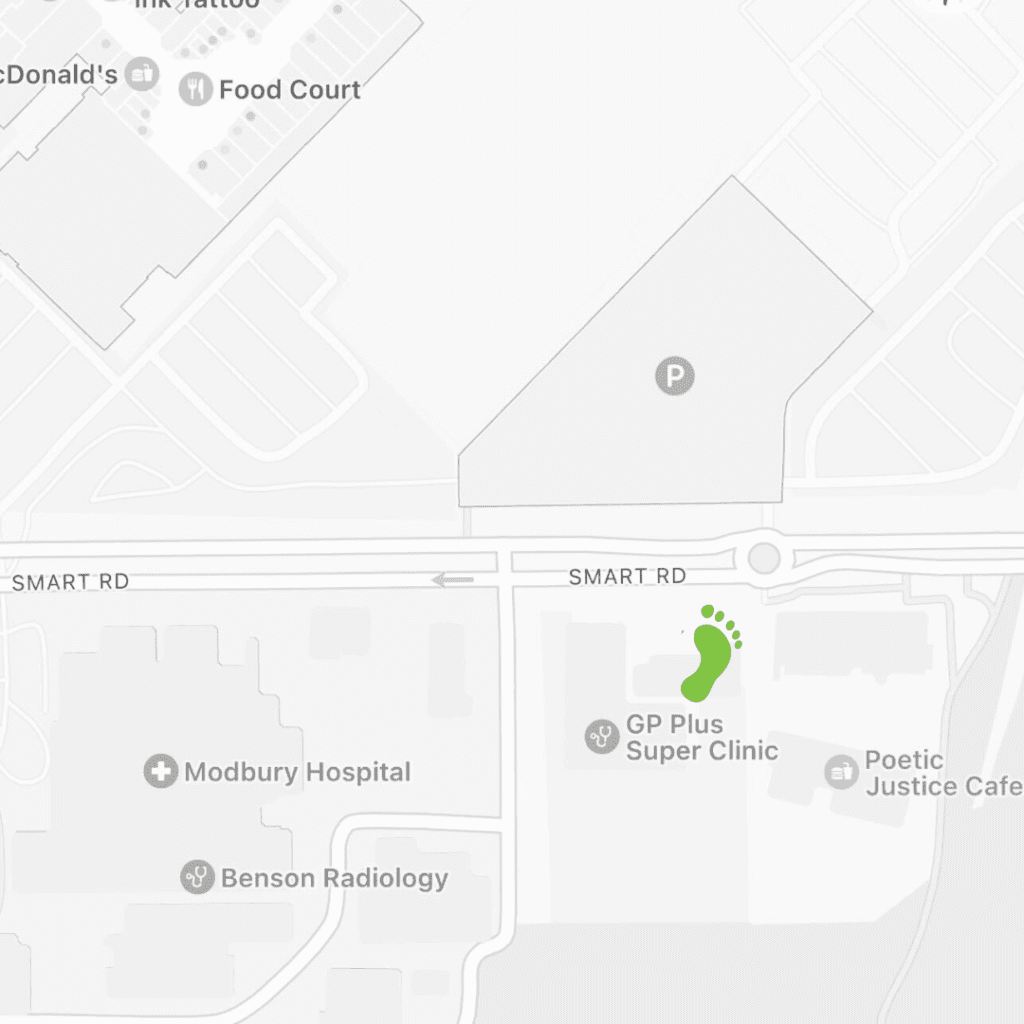 Address: Suite 5, 81-83 Smart Road, MODBURY SA 5092
This location is a Bupa Members First provider
Our Modbury clinic is located on Smart Road, opposite the back entrance to the Tea Tree Plaza car park. The entrance to our car park is at the smaller roundabout, heading east up Smart Road.
Accessibility: Ramp facilities, located on ground floor, disabled parking.
Parking: Onsite free car parking, ample street parking.
Restroom Facilities: Yes
Opening Hours:
Address: Suite 5, 81-83 Smart Road, MODBURY SA 5092
This location is a Bupa Members First provider
Our Modbury clinic is located on Smart Road, opposite the back entrance to the Tea Tree Plaza car park. The entrance to our car park is at the smaller roundabout, heading east up Smart Road.
Accessibility: Ramp facilities, located on ground floor, disabled parking.
Parking: Onsite free car parking, ample street parking.
Restroom Facilities: Yes
Opening Hours:
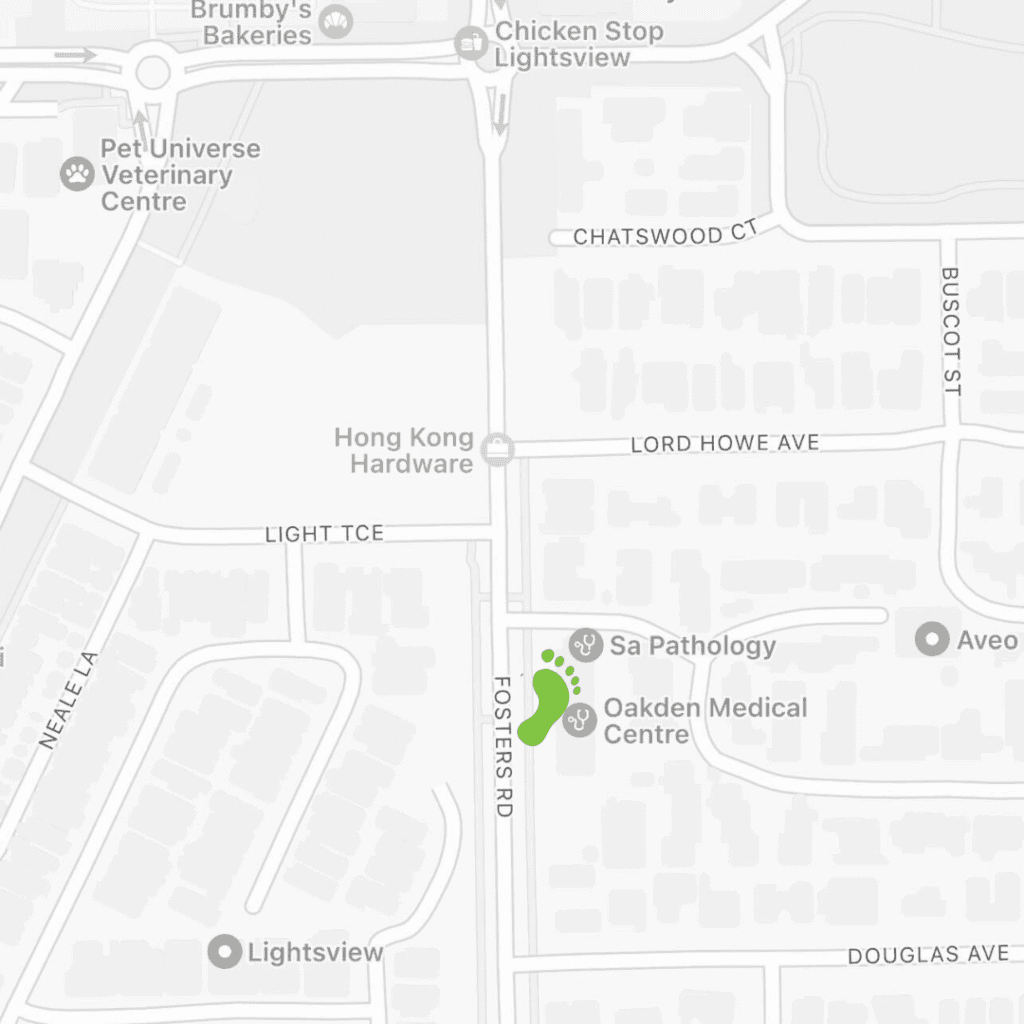 Address: Level 1, 132-134 Fosters Road HILLCREST SA 5086
This location is a Bupa Members First provider.
Our Oakden clinic is located on Level One of the Oakden Medical Centre. The building is a two storey white building on the eastern side of Fosters Road, before reaching the Northgate Shopping Centre.
Accessibility: Lift and ramp facilities, disabled parking.
Parking: Onsite free car parking, ample street parking.
Restroom Facilities: Yes
Opening Hours:
Address: Level 1, 132-134 Fosters Road HILLCREST SA 5086
This location is a Bupa Members First provider.
Our Oakden clinic is located on Level One of the Oakden Medical Centre. The building is a two storey white building on the eastern side of Fosters Road, before reaching the Northgate Shopping Centre.
Accessibility: Lift and ramp facilities, disabled parking.
Parking: Onsite free car parking, ample street parking.
Restroom Facilities: Yes
Opening Hours:
